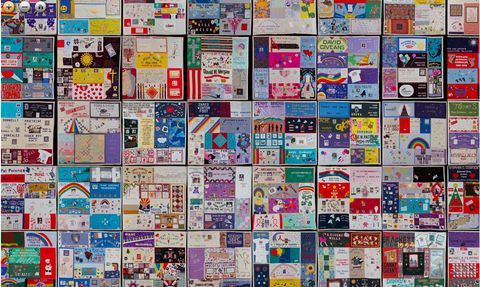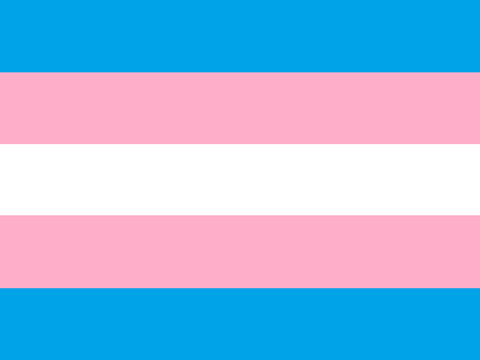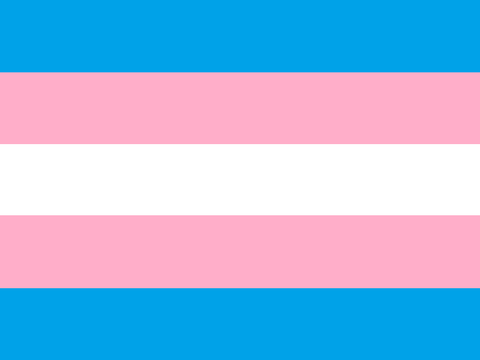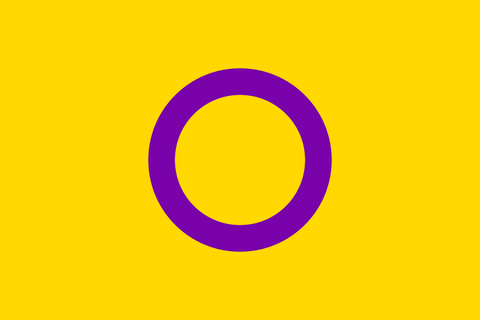Is Singapore safe for LGBTQ+ foreigners? A comprehensive guide
| Updated on
[UPDATE] On 21 August 2022, Prime Minister Lee Hsien Loong has announced that the Singapore government will repeal s377A but retain all forms of anti-LGBTQ+ regulations and policies. Read more
Editor’s note: We try to be as accurate and comprehensive as possible, but mistakes can happen. This article shouldn’t be taken as legal advice.
In November 2020, Singapore’s Prime Minister claimed at a tech conference that gay and lesbian people are “valued” and “welcome in Singapore”. Similar claims have been made in the past, which paint a picture of acceptance towards the queer community in Singapore.
Yet the reality is far from this rosy picture.
A 2020 survey, for instance, found that just being gay or bi in Singapore causes a person’s happiness level to drop by 11%. And despite the claims otherwise, systemic discrimination against LGBTQ+ folks is pervasive in Singapore.
This article is a comprehensive guide for LGBTQ+ folks who are thinking of visiting or living in Singapore for leisure, school, or work. We’ll help you understand existing structures of discrimination, and point out important aspects of day-to-day life that LGBTQ+ folks might want to know about before making their way to Singapore.
This is a long article, but the sections below help you navigate to aspects that matter to you. Here we go!
Skip to a section:
- For all foreigners: The state of LGBTQ+ rights in Singapore
- No constitutional protection
- Section 377A — sexual acts between men are illegal
- Women’s Charter — same-sex marriages are voided
- Healthcare
- HIV discrimination
- “Conversion therapy” and anti-LGBTQ speech
- Censorship of LGBTQ+ representation
- No pride parades
- General social acceptance and safe spaces
- LGBTQ+ support organisations
- For foreign LGBTQ+ students and LGBTQ+ parents
- For foreign LGBTQ+ folks on long term work
- Legal recognition of children
- Dependent visa passes
- Company insurance coverage
- Workplace discrimination
- Rental agreements
- For tourists and short term visitors
- Grand summary
The state of LGBTQ+ rights in Singapore
In general, LGBTQ+ rights are not officially recognised or protected in Singapore [Note 1], and many anti-LGBTQ laws and government regulations exist. Here’s a quick rundown.
No constitutional protection
In 2014, the Court of Appeal (the highest court in Singapore) ruled that discrimination on the grounds of sexual orientation isn’t prohibited under the Constitution. This implies that laws in Singapore may discriminate on the basis of sexual orientation and still be upheld as constitutional.
Section 377A — sexual acts between men are illegal
Update: On 21 August 2022, Prime Minister Lee Hsien Loong has announced that the Singapore government will repeal s377A. Read more
Under s377A of Singapore’s Penal Code, “gross indecency” between men is a criminal offence that comes with up to 2 years of imprisonment.
The term “gross indecency” isn’t explicitly defined, but is generally understood to include not only sex, but acts that are sexual in nature. In other words, all sexual acts between men — whether done in private or in public, with or without consent — are technically illegal.
For instance, police in 1994 arrested and charged men under s377A for touching the private parts of undercover policemen in entrapment operations.
In 2007, Prime Minister Lee Hsien Loong promised in parliament that s377A won’t be enforced (as of 2021, Lee is still Prime Minister). However, this promise likely carries no legal weight, and the Attorney-General clarified in 2018 that the Public Prosecutor isn’t restricted in any way from prosecuting someone using s377A.
In August 2022, Prime Minister Lee announced the government’s decision to repeal s377A. This means that, once the repeal is passed in parliament, sex between men will no longer be a criminal offence.
No similar law exists for sexual acts between women.
Women’s Charter — same-sex marriages are voided in Singapore
Update: On 21 August 2022, Prime Minister Lee Hsien Loong announced the government’s intention to ensure that marriage equality can never be achieved through constitutional challenges in court. Rather, the government seeks to ensure that any change to marriage will be done through parliament. It is yet unclear how this will be mechanically and legally achieved, and what impact it will have on marriage equality in the future.
Under the Women’s Charter, same-sex marriages (even those solemnised outside of Singapore) are explicitly voided. The law is unclear about foreign same-sex couples who are legally married in their country of origin, though the state is unlikely to recognise such marriages.
Since same-sex marriages are voided, same-sex couples are administratively treated as unrelated individuals. This has implications on visa passes, legal recognition of children, company insurance coverage, etc. (more on these later). If you plan to stay in Singapore long term (e.g. for work), be prepared to fight to have your marriage recognised (“Same but Different”, page 8).
Healthcare
Singapore’s healthcare system is largely neutral towards LGBTQ+ individuals. The Singapore Medical Council’s Ethical Code and Ethical Guidelines, for example, forbid doctors from discriminating against patients on the grounds of sexual orientation (page 21, B1.1).
However, our healthcare system might be lacking for transgender and gender-diverse folks. For instance, Singapore only has 1 public clinic that provides psychiatric assessment and assistance to trans folks. Anecdotally, it can also be difficult getting hormone therapy prescriptions or medication.
If you plan to stay in Singapore long term and require medical transitioning support, please conduct thorough research to make sure that your healthcare needs can be met. TransgenderSG is a community organisation that serves the local trans community, and has resources that might help you.
HIV discrimination
Note: it’s difficult to get current and explicit guidelines on this topic directly from the immigration authority in Singapore. This section is written based on statutes, news reports, and third party sources.
While this doesn’t only affect LGBTQ+ folks, it’s worth understanding how Singapore discriminates against foreigners who are living with HIV.
Singapore’s Immigration Act explicitly lists people living with HIV (PLHIV) as “prohibited immigrants” (s 8(3)(ba)) and bans them from entering the country (s 8(2)(a)). The law also allows the state to enforce medical examinations on incoming visitors to test for HIV (s 29(1)). The state doesn’t seem to care whether your viral load is undetectable (PLHIV with undetectable viral loads will still test positive in an HIV test).
Short-term visitors are exempt from the HIV test and ban from April 2015.
On top of that, do note that all PLHIV in Singapore (including short-term visitors) are required by the Infectious Diseases Act to disclose their HIV status to sexual partners before any sexual act (s 23). Having an undetectable viral load doesn’t appear to be a defence against this offence, which is punishable by a fine of up to S$50,000 (approx. US$36,500) or imprisonment of up to 10 years, or both.
Short-term visitors
Short-term visit passes are issued to folks who wish to enter Singapore for tourism, social visits, and medical treatments for up to 30 days. The immigration authority allows an extension of this pass up to 89 days.
Since April 2015, HIV tests are not required for all short-term visitors. This means that PLHIV who enter Singapore on a short-term visit pass will likely be allowed entry.
Long-term workers
Folks who enter Singapore for long-term employment will be required to take a medical examination — which includes an HIV test — before they’re allowed entry. Folks who test positive for HIV will not be allowed to enter the country.
Since work passes need to be renewed periodically, pass holders will need to go through the same medical examination each time they renew their pass. Pass holders who test positive for HIV will have their passes cancelled, and will be forced to leave the country.
On top of that, folks who wish to apply for Permanent Residence in Singapore will be subject to the same medical examination. Those who test positive for HIV will have their application rejected, and may also have their work passes revoked (and be forced to leave the country).
However, those who were already granted Permanent Residence status (i.e. who tested negative for HIV when they applied for it) or who are spouses of Singaporeans will not be deported from Singapore if found to be HIV-positive.
Students
Things get a little more complicated here. In short, all students who enter Singapore for full-time studies will likely be subject to the same HIV test requirement.
Most students will require a Student Pass to study full-time in Singapore. Student Pass applicants will need to undergo a medical examination, which includes an HIV test. Folks who test positive for HIV will not be granted the Student Pass, which means that they will be deported from Singapore.
Even though only universities appear to explicitly mention this medical examination, we’ve found no evidence that suggests that foreign students enrolling in schools below university-level are exempt from the requirement.
Children under 21 who are already in Singapore through a Dependent’s Pass don’t need to apply for a Student Pass to study here. However, Dependent Pass holders are still required to take the same medical examination before they are allowed to enter Singapore in the first place.
“Conversion therapy” and anti-LGBTQ speech are legal
“Conversion therapy” practices exist in Singapore, and are legal. Medical professionals are anecdotally known to refer LGBTQ+ patients to “conversion therapy” practices — perhaps without knowledge that such practices are harmful. There are also organisations here that present themselves as pro-LGBTQ, but in reality promote or conduct “conversion therapy” practices — read this article for more details.
Anti-LGBTQ speech is also legal unless they encourage violence. It’s not uncommon for organisations or individuals to be vocally and explicitly anti-LGBTQ. On the flip side, however, we caution against publicly commenting on religious beliefs, because it’s illegal to wound the religious feelings of others.
Censorship of LGBTQ+ representation
Update: On 21 August 2022, Prime Minister Lee Hsien Loong announced the government’s intention to retain all existing discriminatory policies, which include media censorship guidelines. LGBTQ+ identities will likely continue to be demonised and censored by the state.
In general, Singapore’s media regulation authority censors LGBTQ+ representation in almost all media spaces: TV shows (including on Netflix), video games, radio stations, arts performances (including concerts), publications, and more. Shows, performances, or movies that touch on LGBTQ+ themes will often be rated R21, so access to them will be difficult if you’re under 21 years of age.
There is almost no overt LGBTQ+ representation in mainstream media, outdoor advertisements, or online advertisements.
Public schools in Singapore also suppress LGBTQ+ identities in nearly all aspects (more on this later).
No pride parades
There are no pride parades in Singapore. Permits are typically required for public assemblies or processions, and police in Singapore have been known to reject applications for LGBTQ-focused ones.
An annual pride protest called Pink Dot has been organised since 2009 in place of a parade. However, foreigners are banned by the state from participating in the annual pride protest from 2016.
General social acceptance of LGBTQ+ individuals and safe spaces
Singapore is generally kept conservative through anti-LGBTQ regulations and institutionalised discrimination. However, younger folks tend to be more accepting of LGBTQ+ people. In general, anti-LGBTQ sentiments appear to be driven by either personal beliefs or ignorance.
You should be prepared for weird stares or comments if you’re gender non-conforming, or if you publicly hold hands with someone of the same gender. However, physical violence against LGBTQ+ individuals remains rare.
Safe spaces exist too. LGBTQ+ groups flourish in universities, and LGBTQ-friendly bars and clubs exist with generally little harassment from the state. An Inclusive Business directory has also been set up in recent years, with a list of businesses that pledge to be inclusive in their hiring and general business conduct.
As far as we know, only 1 church in Singapore is publicly pro-LGBTQ.
LBGTQ+ support organisations
There are no state-driven LGBTQ+ support organisations in Singapore. However, many community-driven LGBTQ+ organisations have stepped up to provide support to queer folks here.
Here’s a non-exhaustive list of established LGBTQ+ support organisations and communities in Singapore (listed alphabetically):
-
Heckin’ Unicorn
Heckin’ Unicorn is a local queer brand that advocates strongly for LGBTQ+ rights in Singapore. They write about issues ranging from “conversion therapy” to LGBTQ+ censorship in public schools. -
Inter-University LGBT Network (IULN)
IULN is a student-run organisation that connects LGBTQ+ organisations in Singapore’s universities. They conduct outreach events and provide resources for queer students to navigate Singapore’s often-hostile school environment. -
Oogachaga
Oogachaga is Singapore’s longest-running LGBTQ+ support organisation, and provides queer-affirming counselling (including WhatsApp counselling), workshop, and other services. -
Out in Singapore (Facebook group)
Out in Singapore is a lightly-moderated Facebook group for queer folks in Singapore. Members often organise events and outings, so this might be a good place to start knowing other queer folks. While this is largely a safe space, do note that this is essentially an online forum where members are free to comment on posts. -
Pink Dot
Pink Dot organises Singapore’s annual LGBTQ+ pride protest, which started in 2009. They don’t provide services per se, but are the leading LGBTQ+ advocacy group in Singapore. Foreigners are banned by the state from participating in the annual pride protest from 2016. -
Prout
Prout is an organisation that shares about queer news and events through their Telegram channel, and often organises Queer Trivia Nights and other queer-focused events. -
Sayoni & Brave Spaces
Sayoni is a local advocacy group that champions the rights of queer women through research and events. Brave Spaces provides queer-affirming services to queer women, including a helpline, counselling, and training sessions. -
The T Project
The T Project is Singapore’s only trans shelter, providing a safe space for homeless transgender folks. They also provide trans-affirming counselling, workshop, and other services. - TransBefrienders TransBefrienders provides peer support for the local trans community through their befriending programme, where people are paired with a buddy who can provide emotional support and information.
-
TransgenderSG
TransgenderSG is a community-run group that provides resources for trans-related topics, from transitioning to career planning and more.
Here’s a non-exhaustive list of established LGBTQ-affirming organisations in Singapore (listed alphabetically):
-
Action for AIDS Singapore (AfA)
AfA is a non-governmental organisation dedicated to fighting AIDS/HIV infection in Singapore. They run educational programmes on AIDS/HIV, provide anonymous testing services, as well as care and support for people living with HIV/AIDS. AfA is known to be LGBTQ-affirming. -
AWARE Singapore
AWARE is the leading organisation that fights for gender equality in Singapore, through advocacy, research, and outreach programmes. They provide LGBTQ-affirming services for women such as a helpline, counselling, sexual assault care, and more. -
Samaritans of Singapore (SOS)
SOS provides a 24/7 emergency suicide-prevention helpline, as well as other counselling and outreach programmes. They are known to be LGBTQ-affirming.
The lists above aren’t exhaustive, but these organisations may be able to link you to other organisations if you require other queer-focused services that they don’t provide.
There’s an increasing number of organisations who masquerade themselves as LGBTQ-affirming, but are run by ultra-conservative individuals with less-than-affirming motives. For that reason, we urge caution in approaching organisations that aren’t included above, especially if they are new or have not organised joint projects with any of the above established organisations.
For foreign LGBTQ+ students and LGBTQ+ parents
Singapore’s public education system is one of the best in the world, but it also thoroughly and effectively suppresses LGBTQ+ identities in schools.
Public schools follow a curriculum set by the government, and international schools generally run or adapt from international curricula (such as the International Baccalaureate programme).
Public schools — pre-university
Public schools in Singapore fiercely suppress LGBTQ+ identities. We’ve written an in-depth article about this, so please read this article if you plan to enrol in local public schools.
In short, LGBTQ+ identities are erased from curricula, to the point where teachers learn not to talk about non-heterosexual and non-cisgender identities. Most queer teachers in public schools are closeted, and many fear losing their jobs should they come out.
Teachers and school counsellors are also prohibited from sending LGBTQ-affirming messages to students, or from recommending external LGBTQ-affirming counsellors. School counsellors are known to breach confidentiality and out queer students to their parents without consent.
Anti-LGBTQ teachers are anecdotally known to bully queer students without much consequence, going so far as to forcefully split up queer romantic relationships.
Public schools in Singapore require students to wear gendered uniforms, and are not known to be accommodating to trans and non-binary students. A 2020 survey (page 13) found that only 30% of trans students feel safe at school.
If you will be enrolling in one of Singapore’s public schools, know that help is available. LGBTQ+ support organisations are ready and able to provide affirming services if you need help adjusting to the environment.
If you’re a queer parent or have queer children, please be ready to provide your child with additional support and guidance when they’re here. While you might find sympathetic teachers and school administrators, the rigidity of the system might prevent them from providing a level of affirmation that you want for your child.
International schools — pre-university
International schools in Singapore are governed by the Private Education Act, which still gives the state some control over the schools’ curricula and staff.
However, international schools are generally free to have their own curricula, and many do provide inclusive curricula and school environments. Some international schools may provide gender-neutral bathrooms or gender-neutral uniforms to create a safe and supportive environment.
The best way to find out if the international school of your choice is LGBTQ-affirming is to talk directly with them about it. Because of their relative autonomy, there’s no other easy way to tell how affirming an international school is.
Depending on your / your child’s needs, you may want to ask the school:
- About their policies on bathroom usage or gendered uniforms
- About their policies on bullying, especially those based on sexual orientation or gender identity
- Whether they hire openly-queer teachers and staff
- Whether they provide comprehensive sexuality education
- Whether they have LGBTQ+ groups in their school
It’s worth noting that international schools cost much more than public schools. For instance, a 14-year-old’s school fees might be roughly S$18,000 per year (US$13,500) in public schools, but might cost above S$40,000 per year (US$30,000) in international schools.
Universities
Universities in Singapore tend to be more LGBTQ-friendly than pre-university schools. Modules on gender and sexuality are also available in most universities (often taught by the humanities / arts faculties).
On top of that, student-run LGBTQ+ organisations are common. The Inter-University LGBT Network has member groups in the National University of Singapore (NUS), Nanyang Technological University (NTU), Singapore Institute of Technology (SIT), and Singapore Management University (SMU), but your university might also have LGBTQ+ groups that aren’t part of the network yet.
There might also be safe spaces within university campuses in Singapore. The University Town (U-Town) in NUS, for instance, is generally known to be very accepting of queerness. Reach out to your university’s LGBTQ+ group to find out more about their safe spaces.
Student hostels
If you plan to stay in a student hostel during your period of study, do note that most of them tend to adhere to gendered accommodation rules.
For instance, many student hostels (including those in universities) don’t allow students of mixed genders to share a common living area, and many only provide gendered bathrooms. In general, hostels will likely recognise your gender based on the one specified in your official identification document(s), instead of your presentation.
Some hostels might have gender-neutral bathrooms meant for wheelchair users, and they may allow you to use them if you feel uncomfortable using gendered bathrooms.
We recommend reaching out to your hostel or university LGBTQ+ group in advance to check if they’ll be able to provide for your needs.
For foreign LGBTQ+ folks coming to Singapore for long term work
Most LGBTQ+ discrimination here affect folks who stay in the country for a long term, and disproportionately affect same-sex couples and families. For that reason, LGBTQ+ folks who plan to stay in Singapore for a longer time period for work need to look out for a few key areas.
Legal recognition of children
With same-sex marriages voided, there are serious implications on how the state recognises the legal parent of a child. In general, the gestation mother (i.e. the woman who birthed the child) might be deemed as the default legal parent of the child.
The legal guidebook “Same but Different” provides a detailed explanation of the intricacies of legal parenthood, but professional legal advice should be sought from practicing lawyers in Singapore if you need help on this topic.
Biological children
By default, the gestation mother will likely be deemed as the legal parent of the child.
If both parents are women, the gestation mother might be recognised by the state as the legal parent, while the other might be treated as an unrelated individual. This means that the “non-legal parent” will likely be unable to apply for dependent visa passes and face issues with company insurance coverage for the child (see relevant sections below).
If both parents are men, the situation is even more complex. We recommend seeking professional legal advice on whether the state would recognise either parents as the legal parent of the child. This may have implications on the eligibility of dependent visa passes, insurance coverage, and more for both parents (see relevant sections below).
Adopted children
Given that the Manpower Ministry allows legally adopted children to be granted a Dependent’s Pass to enter Singapore, there’s a possibility that the state will recognise at least one partner as the legal parent. However, this is a complex area of the law, and we recommend seeking professional legal advice from practicing lawyers in Singapore to seek clarifications before coming to Singapore.
Dependent visa passes
Foreigners who enter Singapore to work through an Employment Pass or S Pass and earn at least S$6,000 per month may also apply for visa passes for their family members.
However, same-sex couples and families face challenges because they’re not officially recognised here.
Dependent’s Pass
Dependent’s Passes are meant for the legally married spouses and unmarried children under 21 (including legally adopted children) of Employment and S Pass holders.
However, the Ministry of Manpower has clarified in October 2022 that they have never issued any Dependent’s Pass to same-sex spouses or partners of work pass holders. That is likely due to the fact that gay marriages or unions are not recognised here. This means that your spouse will need to enter Singapore according to their own merits (e.g. by also seeking employment here).
As mentioned above, whether you’ll be able to get your child into Singapore as a dependent depends on whether the state recognises you as their legal parent. If you are the gestation mother of your child, your odds might be higher. In any case, we strongly recommend seeking professional legal advice from practicing lawyers to help you with this complex matter.
Long Term Visit Pass (LTVP)
LTVPs are meant for common-law spouses, step-children, and handicapped children of Employment and S Pass holders. But as with Dependent’s Passes, same-sex spouses will likely not be recognised by the state, so LTVP applications will likely be rejected as well. This means that your spouse will need to enter Singapore according to their own merits (e.g. by also seeking employment here).
LTVPs aren’t allowed for biological or legally adopted children.
Workarounds
To be honest, there doesn’t seem to be any good workarounds, and we don’t recommend them either. If you need to get your spouse or child into Singapore with you, please seek professional legal advice.
Company insurance coverage
Some companies (especially MNCs) provide insurance coverage and other benefits for expat employees and their families. However, since same-sex marriages are not officially recognised here, most companies’ insurance policies exclude same-sex families by default. On top of that, only the legally-recognised children of the employee will benefit from insurance policies that supposedly cover immediate family members.
In other words, unless your company’s insurance policy explicitly includes same-sex couples and their families, you should expect your family to be excluded from coverage. Some companies include coverage by allowing “domestic partners” (i.e. partners that you live with long term) to be included in their employee’s insurance policies — this drops the need for partners to be legally recognised as family members.
Unfortunately, while this practice might be more common in countries such as the United States, it’s extremely uncommon in Singapore. For instance, we only know of 2 MNCs in Singapore that provide comprehensive insurance coverage for same-sex families.
It’s also extremely uncommon for insurance policies to cover transgender medical needs such as sex reassignment surgeries or hormone therapy. For that reason, if you think that insurance coverage is an important part of your compensation package, we recommend asking your hiring manager directly if their policy will cover your needs.
Workplace discrimination
Workplace harassment of LGBTQ+ individuals is common in Singapore. A 2013–2014 census found, for instance, that 15% of LGBTQ+ individuals faced discrimination or bullying at work (para F40). And unless their employers have taken a clear stance against discrimination of all forms, most victims are reluctant to report such behaviours, for fear of further retaliation.
But that’s not all. Employers can possibly dismiss LGBTQ+ individuals just because of their identity with no consequence. That’s because Singapore’s employment laws and Constitution likely don’t protect against unfair dismissals on the grounds of sexual orientation or gender identity.
We recommend speaking with your company to ask about their anti-discrimination policies. However, do bear in mind that company policies may not be legally binding.
Rental agreements
You’ll likely be renting a place throughout the duration of your work in Singapore. However, standard tenancy agreements put LGBTQ+ individuals at risk of eviction.
The Council for Estate Agencies is a statutory board that oversees the real estate agency industry. Their standard tenancy agreement template allows landlords to prematurely terminate the agreement if a tenant uses the flat for activities that are “illegal” or “of an improper nature” (clauses 5.1j and 7.1b). Since sex between men is technically illegal, and sexual activities involving LGBTQ+ individuals may broadly be deemed as “improper in nature”, landlords may legally evict LGBTQ+ tenants if they wish to.
We recommend negotiating a modification of clause 5.1j, or seeking landlords who are explicitly LGBTQ-friendly. Property marketplace 99.co has a “Diversity friendly” filter that allows renters to seek out landlords who are welcoming.
For tourists and short term visitors
The reality of LGBTQ+ discrimination in Singapore is that it affects those who are the most integrated into our society. Because of that, tourists and short term visitors might get the best experience out of all foreigners who come to Singapore.
Apart from general hostility towards LGBTQ+ folks in public spaces, there’s nothing much to worry about when visiting Singapore as a tourist. Gay sex is illegal but isn’t actively prosecuted, and queer bars and night life venues generally operate without harassment from the state. And unless in extreme circumstances, same-sex families generally don’t need to worry about the legal ambiguity of their marriage or parenthood status when they’re only here for a short stay.
Drug use is highly illegal in Singapore (and this includes weed), but this warning is applicable to tourists of all sexualities and gender identities.
Grand summary
There’s really no pleasant way to put this: the more resources you have and the shorter your stay in Singapore, the less affected you’ll be by the LGBTQ+ discrimination here.
Short term visitors and tourists are largely unaffected by the slew of anti-LGBTQ laws and regulations. Queer students who can afford international school fees will be able to choose safe environments to grow up and learn in.
Long term workers potentially suffer the most, because they are the most integrated into Singapore’s society. But only those who have already started a family overseas, or who plan to start a family here, need to worry about the implications of marriage and legal parent recognition.
In a twisted way, Prime Minister Lee’s claim that LGBTQ+ folks are “welcome in Singapore” is somewhat true — if you’re single and affluent enough to stay inside a safe bubble, and if you don’t intend to stay here for long. In the meantime, people who are born here and who are unable to leave will experience the full depth of discrimination.
Note 1
In 2019, the Maintenance of Religious Harmony (Amendment) Bill was passed, which — for the first time in Singapore’s history — explicitly protects LGBTQ+ folks against violence incited on the grounds of religion. However, it shouldn’t surprise you that our laws already protect against the inciting of violence on any person, on almost any ground.
To illustrate, the abetment — i.e. instigation, or incitement — of a crime is in itself a criminal act. The abettor will likely be punished as if they committed the crime themselves. In other words, inciting violence on others is (thankfully) already a crime before the new Bill was passed.
In effect, the new Bill potentially increases the punishment for inciting violence on the grounds of religion, but doesn’t offer any additional legal protection to LGBTQ+ folks in Singapore.






I appreciate the insightful and comprehensive guide on the safety of LGBTQ foreigners in Singapore. It’s crucial to be aware of local nuances, and your article provides valuable information that promotes a better understanding of the environment. Well-written and informative – thank you for shedding light on this important aspect for travelers.